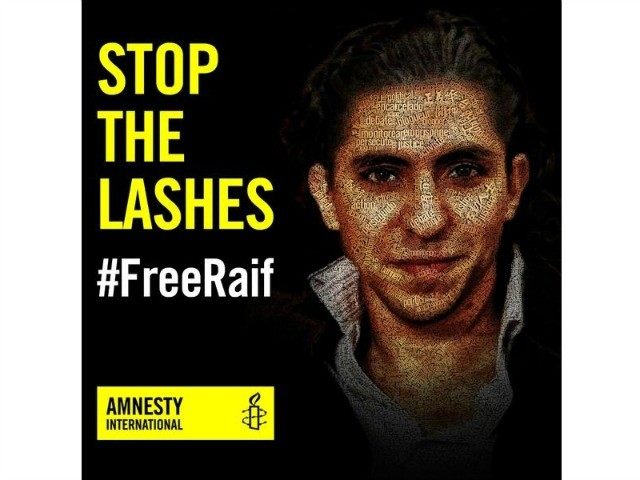After Saudi Arabia sentenced blogger Raif Badawi to public flogging, seven of the nine members of the U.S. Commission on International Religious Freedom (USCIRF) stepped forward to ask the Saudis to commute his sentence or, if not, to whip them instead.
The only two members of the Commission who refused to sign the letter were James Zogby, the founder and president of the Arab American Institute, and Jesuit Father Thomas Reese of the National Catholic Reporter. Zogby’s abstention is understandable. As the author of Arab Voices, the co-founder of the American-Arab Anti-Discrimination Committee, and an advocate of Saudi interests, it isn’t hard to guess where his allegiance lies. With dozens of Jesuit martyrs in his order’s history, however, and some of these to radical Islam, Reese’s case is more complex.
Reese, a vocal critic of the 1992 Catechism of the Catholic Church, is the former editor of the Jesuit Magazine America, who was pressured to step down by the Vatican in 2005 for misrepresenting Catholic teaching on a number of issues, including same-sex marriage, homosexual priests, priestly celibacy, women’s ordination and offering Holy Communion to pro-abortion Catholic politicians.
At the time, Father Richard McBrien, a prominent dissident theologian, defended Reese: “I would be astonished if anyone except extreme right-wingers would be offended by anything he’s either written or said.”
President Barack Obama appointed Reese to the Commission in May, 2014, in gratitude for Reese’s ardent defense of Obamacare and the Administration’s abortion mandate, in opposition to the U.S. bishops who were desperately fighting for exemptions to the draconian provisions of the mandate.
The most charitable read on Reese’s decision not to sign the letter is that Reese is eminently diplomatic. He is not one to stand up to bullies with a whip in their hand, and nor would he encourage others to do so. Some months before Pope Benedict delivered his famous Regensburg address in September 2006, Reese said in an interview with the BBC:
“If the Vatican says something dumb about Muslims, people will die in parts of Africa and churches will be burned in Indonesia, let alone what happens in the Middle East.”
In a Q&A in 2013 before the election of Pope Francis, Reese was asked what the cardinals look for in a papal candidate. He said that among other things they look for someone who will not cause problems in the Cardinal’s country. Cardinals from countries with lots of Muslims, for instance, don’t “want a pope who says stupid things about Islam.”
And Reese does not want to cause problems, least of all for himself.
The commissioners wrote: “If your government will not remit the punishment of Raif Badawi, we respectfully ask that you permit each of us to take 100 of the lashes that would be given to him.”
“We would rather share in his victimization than stand by and watch him being cruelly tortured. If your government does not see fit to stop this from happening, we are prepared to present ourselves to receive our share of Mr. Badawi’s unjust punishment,” they conclude.
Commissioner Daniel Mark, an orthodox Jew who signed the letter, wrote:
When this idea was originally floated, my first thought was that I was too scared (cowardly?) to sign on. My second, more comforting thought was that the Saudis would never call our bluff, as it were, so it was a safe gamble in our attempt to bring enough negative attention to the case that they might reconsider their cruelty… My third thought, though, was that I should not sign the letter unless I was genuinely committed to taking the lashes if the Saudis took us up on our offer… I’ve been thinking what it means to sacrifice for others, to go to the Cross, as some might say, in the fight for justice. Similarly, for those who believe it is something to be emulated and not just admired, what does it mean to say, “Inasmuch as ye have done it unto one of the least of these my brethren, ye have done it unto me”? What is our responsibility for this man who is suffering for nothing more than exercising his freedom of speech and freedom of religion?
Though the commissioners must have believed it unlikely that the Saudi government would take them up on their proposal, this was still a heroic offer. And not everyone can be expected to be a hero.
Follow Thomas D. Williams on Twitter: @tdwilliamsrome

COMMENTS
Please let us know if you're having issues with commenting.